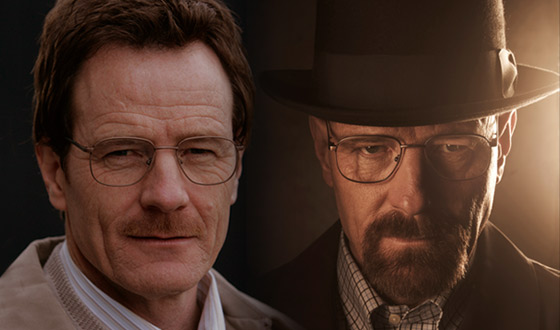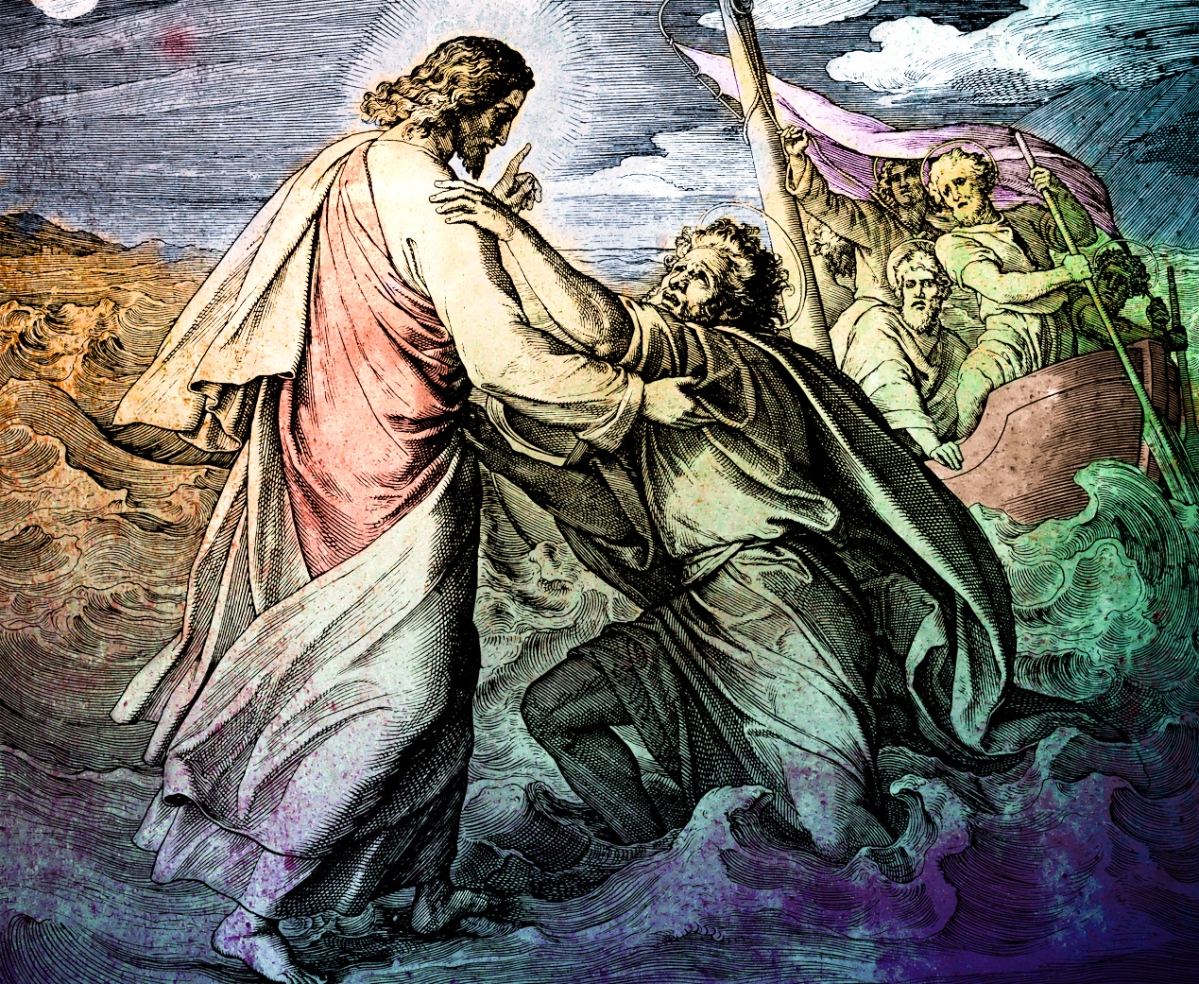It’s easy to root for Robin Hood. Afterall, who doesn’t love the story of someone taking wealth from those who have more than they need and redistributing it to those who have a desperate need? Sure, we may not directly condone his methods but we like his mission.
It’s easy to root for young Vito Corleone from The Godfather Part II. He sticks up for the neighborhood by taking it to the current regime of bullies who run the place. He protects those who can’t protect themselves. Nevermind that he becomes the self-same monster he first wrestles against in the process; it’s easy to overlook for all his noble rebellion.
It’s…less easy – or perhaps uncomfortable – to root for Bryan Cranston’s Walter White in AMC’s cult classic television series Breaking Bad. If you haven’t seen the show (which debuted 10 years ago and finished in 2013) beware spoilers ahead. White is a poor public educator at a high school who, when given a terminal cancer diagnosis, turns to the manufacture of illegal drugs (methamphetamine) in order to provide an inheritance for his family upon his death. A noble cause.
There’s a saying about noble intentions and a certain road to hell that applies here.
From Walter to Heisenberg
In his journey of illegal activity aimed at a noble cause, White transforms into an alter-ego, a crime boss named Heisenberg. White attempts to keep these personalities secret and separate. For much of the show, he straddles the line between the two – the meek, family-first Walter White and the violent, cutthroat criminal bent on dominating the meth market. As the story often goes, however, the two worlds of competing intentions within a person eventually collide and fallout ensues.
In White’s case, he embraces his “Heisenberg” persona. There’s a pivotal scene in the series where White demands of another dangerous criminal: “Now…say my name.” The criminal responds “Heisenberg,” to which White is pleased. The line is no longer straddled: it’s been crossed. The “good guy” Walter White has become the despicable “Heisenberg” in dramatic fashion. The pretense is dropped. The means are not simply justified by the ends – they are abandoned, cast aside, made irrelevant.
As I watched Breaking Bad over those years I found myself starting to root for Walter White. He was a Robin Hood type – an unlikely hero to an unknowing family. He was a noble Vito Corleone – challenging the system of terrible teacher pay, the underdog in a street fight where leaving a legacy and setting his family up for success were the stakes.
As he became Heisenberg, however, my perspective shifted. I realized that I had been duped, cleverly, by good writers crafting a complicated story that was playing on several of my emotions at once. How could I continue to root for the Walter White I had embraced, loved, cheered on, as he steadily became a monster of his own making? The question shifted even further: which persona was the real one, Walter White or Heisenberg? Had Heisenberg been lurking beneath the surface, wearing a Walter White mask all along, and I’d missed it? Was I implicitly rooting for the bad guy in the first place?
Fessing Up
We are in a disturbed place in our nation right now. For my generation, this is a time and place in our culture where ideological differences in politics and policy-making are ripping people apart. People are confessing – along with Kevin Costner – that they no longer ‘recognize’ America. There is severe mistrust on all sides of the partisan aisles of authorities that comes hot on the heels of multiple movements, an example of which are the revelations that the #MeToo movement has brought into the light.
As a nation, it feels as though the people we trusted to bring about the right kind of change – noble causes, causes that support more responsible freedom, plans that solve tough issues and provide solutions with a high moral bar – are desperately failing. We handed over the keys to more than just policy and law-making: we handed over the keys to our hearts, to our consciences, to our dreams and collective vision of America.
We got duped.
In the latest crisis, we find out that in the name of safe borders and responsible immigration policies – which no one in their right mind would argue against – children are being separated from their families, the process of unifying families is muddy, and the conditions of which appear to be deplorable. It’s hard as a normal citizen to sort out all of the facts in one supreme, objective column that denies partisan biases, so discernment is necessary here. By posting these links I am neither condoning or promoting any particular news outlet or commentator.
Our Robin Hoods, or Vito Coreleones, our Walter Whites have gone to accomplish something we can support. But in the process, they have become Heisenberg. They have embraced means that can no longer reasonably justify any end. They have crossed lines that we aren’t willing to walk across. They’ve misused sacred texts and sought to justify the unjustifiable.
By “we” I am referring to the collective tribe that I belong to: conservative evangelicalism. This is a dirty word, a tarnished label, a battered brand in our country today. Some in our tribe cling to that as a frayed badge of honor and cry out “persecution!” Others (with which I admit that I find my alignment) seek to use that term as little as possible given the baggage assigned it.
Some will say, “I told you so.” Some will say, “You should’ve seen it coming.” They’re right. It’s hard to admit it, but they are.
3 Thoughts on Getting “Un-Duped”
In this already long blog post, I want to offer my opinion on 3 potential ways going forward that can lead us – healthily – out of the “head-stuck-in-sand” ostrich posture that has been taken and into fruitful conversation. If you aren’t there yet – and you don’t believe that your Walter White politicians have turned into Heisenberg – then you might disagree. That’s ok. We’re in this together. Oh…and check out the first thought, at least.
Quit equating disagreement with hatred.
This is the core problem with social media in a nutshell: if you don’t agree with me, you hate me. If you didn’t “like” my post, you don’t like me as a person. If you don’t embrace my opinion, you don’t embrace me. If you don’t cheerfully support every thought I have, you ruefully reject me as a person. This is flawed thinking.
Stop it.
It’s quite possible to love someone without agreeing with them. It’s quite possible to like someone without “liking” their social media posts. It’s quite possible to disagree with someone while embracing them and wishing for them to thrive. It’s quite possible not to support a person’s personal line of thinking and still cheer them on. One author calls this “covenant-keeping” between one another and argues that when this is outsourced to an institution (government or church, even) it becomes a systematic problem in the process of embracing each other as human beings (see Volf note below). We’re called to love our neighbors, not to condone everything they think or do.
Critically examine your allegiances.
In an interesting book by Matthew Bates, the Greek word for faith, pistis, is reframed as “allegiance.” I’m not sure I wholesale agree with Bates on everything, but his thesis is sound: simple intellectual assent is not sufficient as “saving faith” in Jesus; it takes pledging allegiance to God and his kingdom, and this is what is meant when we confess and believe in Jesus (see Bates note below).
Where do your ultimate allegiances lie? When the people you align with twist biblical interpretation to maintain authority over the land they “possess” or make fun of references to children with disabilities in order to discredit another political agenda, you should be bothered. If you’re not, you should be asking, “who have I truly pledged my allegiance to?”
“Don’t throw the baby out with the bathwater,” they say. I’m fine with that to a point. The question here is not about whether or not our leaders have flaws and blind spots. They do – I have faults and blind spots, you have faults and blind spots, we all do. The question is, who is the “baby” in this example? If you will, who are you “bathing” or, pledging your allegiance to? I’d much rather have the one baby in history – born of a virgin, to immigrant parents, in a manger because nobody with a room bothered to help a scandalous family in a deep time of need – in my “tub” than anyone or anything else.
Do something with your convictions.
There has been a ton of fire levied at people who say “thoughts and prayers are with” such-and-such. In many ways, it’s a cynical criticism of people who don’t know or care about what praying means to a person who is faithful. However, in another sense, it is a warning to the church and to believers of the world’s weariness with words not accompanied by action. True prayer changes us, says Richard Foster, and it leads us into action (see note on Foster).
The world is tired of Christians telling them how things should be and then doing nothing.
Is your prayer life leading you to act on your convictions? Great! Here’s a list of 10 things you can actually do to help immigrant children who’ve been separated. I haven’t vetted each of these personally, but they sound like a great start. If you live in these areas, consider being present physically and praying and speaking with families. Reach out and do something. Prayer is the place to start, but it can’t be the only thing the church has to offer people who are suffering.
The Greatest of These is Love
I won’t suggest that the intersection of faith and politics in public life is easy. It’s not. However, I think there is a way forward, a via media or “middle way,” where the religious and nonreligious can walk hand-in-hand to make reasonable, moral progress in policy-making. If the church can embrace some steps to being “un-duped,” and if she can place her loyalties where they belong, then maybe – just maybe – she can reject the Heisenberg syndrome of her worldly idols and pledge allegiance to her true Prince of Peace and Lord of Love, Jesus.
Notes
Miroslav Volf in Exclusion & Embrace, 1996, pp. 140 – 156.
Matthew Bates in Salvation by Allegiance Alone, 2017, pp. 24 – 25.
Richard Foster in Celebration of Discipline, 1998, p. 33.








